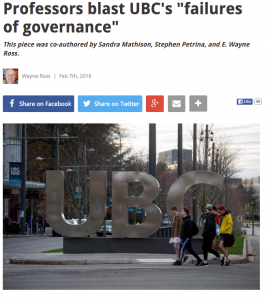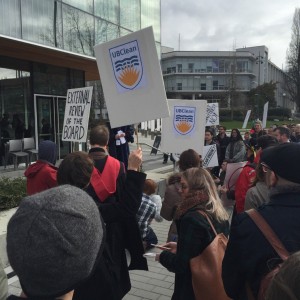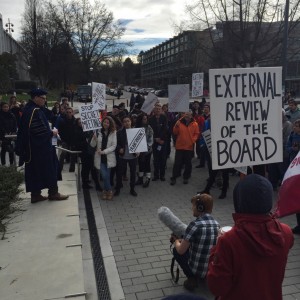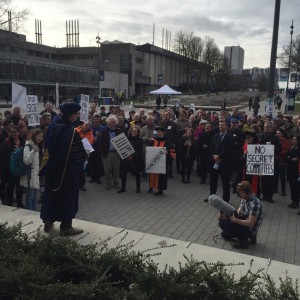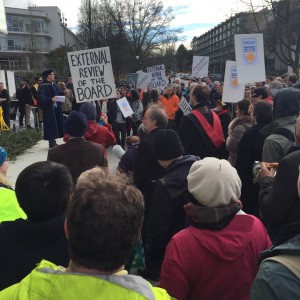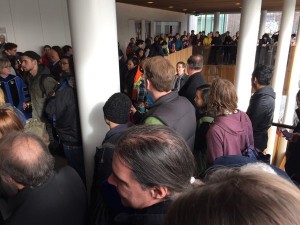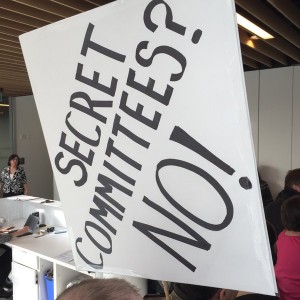The ongoing drama at University of British Columbia may look like a tempest in a teapot, but the dispute among university governors, managers, and faculty has implications that reach beyond the ivory tower.
Two principles are at the heart of the crisis: transparency in governance and academic freedom.
The early August announcement that Arvind Gupta had suddenly and immediately resigned as president was startling, coming just 13 months after his term began. In March 2014, UBC Board Chair John Montalbano said “The opportunity to lead one of the world’s great universities attracted outstanding candidates, but Dr. Arvind Gupta clearly stood out as the best choice to lead this great university.”
What happened?
Well, Montalbano and the UBC Board are not saying. The Board justifies its silence by pointing to non-disclosure agreements, which they drafted and signed, as did Gupta.
Non-disclosure agreements protect secrets. The Board ruled out issues of competence, discipline, and health as reasons for Gupta’s departure. Which makes many wonder why no reasonable explanation has been offered.
Why shouldn’t we just accept the Board’s decision and move on? Because effective oversight of government and public institutions requires transparency, access to information, which helps to hold officials accountable and ensure public interests are served.
B.C. Premier Christy Clark, who is responsible for appointing a majority of the UBC Board, says “open government is about giving people a sense of confidence that government is working for them, not trying to do something to them.” And, that is exactly the point. Clandestine Board meetings – which are the norm at UBC – and refusal to fully disclose information lead people to believe that something is being done to them.
Mark Mac Lean, UBC Faculty Association president, has argued that in “the absence of an informed explanation” any non-disclosure provisions related to Gupta’s departure are “contrary to the public interest and contrary to the best practices expected of a major public institution.” If you support open and transparent government, I do not understand how you could disagree.
Two days after the Gupta announcement, Kris Olds, a UBC graduate and global higher education expert, wrote that a key lesson from recent university leadership crises is that an early lack of transparency and full communication heightens the risk of a major crisis erupting.
And just days later, as predicted, UBC was in damage-control while the crisis went from from bad to worse, with a faculty revolt and full blown public relations disaster.
A major complicating factor is the allegation that Board Chair Montalbano interfered with the academic freedom of Professor Jennifer Berdahl, attempting to silence her. A charge he has denied.
Following the announcement of Gupta’s departure, Berdahl wrote that perhaps Gupta had “lost the masculinity contest among the leadership at UBC, as most women and minorities do at institutions dominated by white men.”
Some in the media have dismissed Berdahl’s analysis; made jokes about it.
Research on the gendered nature of work is no joke, but only a few insiders know whether this dynamic applies in Gupta’s case. Berdahl’s perspective isn’t constructed out of thin air, it is based on her experience of UBC as workplace and her academic expertise.
As the Montalbano Professor in Leadership Studies, Berdahl studies power, discrimination, harassment, and diversity. Her mandate is to promote diverse leadership. One of the research groups she leads focuses on work as a masculinity contest, an effort that is, ironically, funded by donations from Montalbano and his employer, Royal Bank of Canada.
So when the board chair – who also happens to be on the advisory board of your faculty, and a major donor to the university – calls to discuss your critical analysis of the decision he just announced, direct threats do not have to be made. The power imbalance makes it nearly impossible the conversation to be a collegial exchange.
Obviously, Berdahl was not cowed, but it’s fair to say that in similar situations many others would be. As a recent New York Times article puts it “when you’re in charge, your whisper may feel like a shout.”
Universities exist for the common good, not to further the interest of an individual or institution as a whole.
And, as the influential 1940 statement of American Association of University Professors argues, the common good depends upon the free search for truth and its free expression. These are principles that are clearly stated and even extended further in the policies of UBC.
Transparency in governance and academic freedom contribute in profound ways to the health of democracy and the common good.
Secrecy is an obstacle to good and open governance.
Actions that have the effect of intimidating or harassing (whether intended or not) undermine the ability of people to “freely work, live, examine, question, teach, learn, comment and criticize,” activities that the UBC Board of Governors state they are committed to maintaining at every level of the university.
It is time for the Board to start walking its talk, if they don’t they are damaging more than a university.
[This article was published August 27, 2015 in the Times Colonist (Victoria, BC).]
